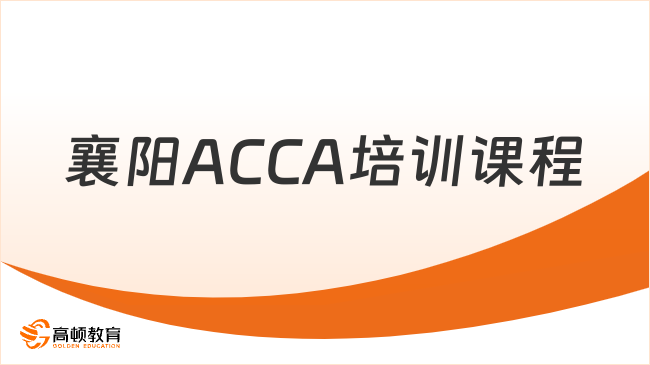2015年ACCA考试《审计与认证业务F8》知识点分析(3)
来源:
高顿网校
2015-04-17
RELEVANT TO ACCA QUALIFICATION PAPER F8
Subsequent events
Students of financial reporting and auditing papers will have to gain an
understanding of how subsequent events (also known as ‘events after the
reporting period’) affect the financial statements of an entity. This article will
consider the financial reporting aspects concerning subsequent events using a
case study type scenario, and will then discuss the auditing requirements that
candidates of Paper F8, Audit and Assurance need to be aware of.
Financial reporting considerations
In almost all circumstances, financial statements will not be finalised until a
period of time has elapsed between the year-end date and the date on which
the financial statements are (expected to be) issued. Therefore, regard has to
be given to events that occur between the reporting date and the date on which
the financial statements are (expected to be) authorised for issue.
IAS 10, Events After the Reporting Period stipulates the accounting and
disclosure requirements concerning transactions and events that occur
between the reporting date and the (expected) date of approval of the financial
statements. Among other things, IAS 10 determines when an event that occurs
after the reporting date will result in the financial statements being adjusted,
or where such events merely require disclosure within the financial statements.
Such events are referred to in IAS 10 as ‘adjusting’ or ‘non-adjusting’ events.
Students who have studied Paper F3, Financial Accounting will have come
across such terminology and it is imperative that they can differentiate
between an adjusting and a non-adjusting event. IAS 10 prescribes the
definitions of such events as follows:
Adjusting event
An event after the reporting period that provides further evidence of conditions that
existed at the end of the reporting period, including an event that indicates that the
going concern assumption in relation to the whole or part of the enterprise is not
appropriate.1
Non-adjusting event
An event after the reporting period that is indicative of a condition that arose after the
end of the reporting period.1
Example 1
You are the trainee accountant of Gabriella Enterprises Co and are preparing
the financial statements for the year-ended 30 September 2010. The financial
statements are expected to be approved in the Annual General Meeting, which
2
SUBSEQUENT EVENTS
APRIL 2011
is to be held on Monday 29 November 2010. Today’s date is 22 November
2010. You have been made aware of the following matters:
1. On 14 October 2010, a material fraud was discovered by the
bookkeeper. The payables ledger assistant had been diverting funds into
a fictitious supplier bank account, set up by the employee, which had
been occurring for the past six months. The employee was immediately
dismissed, legal proceedings against the employee have been initiated
and the employee’s final wages have been withheld as
part-reimbursement back to the company.
2. On 20 September 2010, a customer initiated legal proceedings against
the company in relation to a breach of contract. On 29 September 2010,
the company’s legal advisers informed the directors that it was unlikely
the company would be found liable; therefore no provision has been
made in the financial statements, but disclosure as a contingent liability
has been made. On 29 October 2010, the court found the company
liable on a technicality and is now required to pay damages amounting
to a material sum.
3. On 19 November 2010, a customer ceased trading due to financial
difficulties owing $2,500. As the financial statements are needed for the
board meeting on 22 November 2010, you have decided that because
the amount is immaterial, no adjustment is required. The auditors have
also confirmed that this amount is immaterial to the draft financial
statements.
Required:
(a) For each of the three events above, you are required to discuss whether the
financial statements require amendment.
Answer:
When presented with such scenarios, it is important to be alert to the timing of
the events in relation to the reporting date and to consider whether the events
existed at the year-end, or not. If the conditions did exist at the year-end, the
event will become an adjusting event. If the event occurred after the year-end, it
will become a non-adjusting event and may simply require disclosure within the
financial statements.
高顿网校温馨提醒
各位考生,2015年ACCA备考已经开始,为了方便各位学员能更加系统地掌握考试大纲的重点知识,帮助大家充分备考,体验实战,高顿网校开通了全免费的ACCA题库(包括精题真题和全真模考系统),题库里附有详细的答案解析,学员可以通过多种题型加强练习。戳这里进入ACCA免费题库>>>
| ACCA网络课程 | 课程专业名称 | 讲师 | 试听 |
 85%的人正在学习该课程 85%的人正在学习该课程 | ACCA 全维度网课体验课程 实景课堂与独立录制 覆盖所有知识点,根据学习计划推进学习进度 | 高顿名师 |  |
 70%的人正在学习该课程 70%的人正在学习该课程 | ACCA网课全科卡(8.2折) 为零基础刚开始学习ACCA的学员特别定制 | 高顿名师 |  |
精彩推荐:
版权声明:本条内容自发布之日起,有效期为一个月。凡本网站注明“来源高顿教育”或“来源高顿网校”或“来源高顿”的所有作品,均为本网站合法拥有版权的作品,未经本网站授权,任何媒体、网站、个人不得转载、链接、转帖或以其他方式使用。
经本网站合法授权的,应在授权范围内使用,且使用时必须注明“来源高顿教育”或“来源高顿网校”或“来源高顿”,并不得对作品中出现的“高顿”字样进行删减、替换等。违反上述声明者,本网站将依法追究其法律责任。
本网站的部分资料转载自互联网,均尽力标明作者和出处。本网站转载的目的在于传递更多信息,并不意味着赞同其观点或证实其描述,本网站不对其真实性负责。
如您认为本网站刊载作品涉及版权等问题,请与本网站联系(邮箱fawu@gaodun.com,电话:021-31587497),本网站核实确认后会尽快予以处理。
点一下领资料
【整理版】ACCA各科目历年真题
真题高频考点,刷题全靠这份资料
下载合集
acca全科学习思维导图
梳理核心考点,一图看懂全部章节
下载合集
2023年acca考纲解析
覆盖科目重难点,备考按照计划走
下载合集
acca备考 热门问题解答
- acca考试怎么搭配科目?
-
建议优先选择相关联的科目进行搭配报考,这样可以提高备考效率,减轻备考压力,1、F1-F4:为随时机考科目,难度较低,这里可以自行随意选择考试顺序。2、F5-F9:如果你的工作的和财务会计或者审计有关、或者你比较擅长财务和审计的话,推荐先考F7和F8。你可以选择一起考ACCA考试科目F7和F8或者先考F7(8)再考F8(7),这就要取决你一次想考几门。3、P阶段:选修科目中,建议企业首选AFM!第二部分科目进行选择,如果AA和SBR掌握学生更好,可以通过选择AAA,如果SBL掌握的好,可以自己选择APM。
- acca一共几门几年考完?
-
acca一共有15门考试科目,其中有必修科目和选修科目,考生需要考完13门科目才能拿下证书。
- acca一年考几次?
-
acca一年有4次考试,分别是3月、6月、9月和12月,分季机考科目是采取的这类四个考季的模式,而随时机考则是没有这方面的时间规定限制,可以随报随考。
- acca的含金量如何?
-
ACCA证书的含金量是比较高的,从就业、能力提升、全球认可等角度来说,都是比较有优势的证书,其含金量主要表现在以下几个方面:1、国际化,认可度高;2、岗位多,就业前景好;3、缺口大,人才激励。
严选名师 全流程服务
其他人还搜了
热门推荐
-
盐城ACCA培训机构,高顿ACCA要不要报? 2023-07-04
-
绵阳ACCA培训课程,高顿ACCA值得报吗? 2023-07-04
-
莆田ACCA培训推荐,高顿ACCA要不要报? 2023-07-03
-
昆山ACCA培训班,高顿ACCA培训介绍? 2023-07-03
-
会计专业有哪些证书大学可以考?证书报考条件及获取指南一览! 2023-07-03
-
会计专业acca方向是学什么的? 2023-07-03
-
银川ACCA培训机构,高顿ACCA有哪些优势? 2023-07-03
-
襄阳ACCA培训课程,高顿ACCA值得报吗? 2023-07-03
-
南通ACCA培训介绍,高顿ACCA课程如何? 2023-07-03
-
鞍山ACCA培训推荐,高顿ACCA推荐吗? 2023-07-03
-
西宁ACCA培训推荐,高顿ACCA有哪些优势? 2023-06-26
-
江门ACCA培训机构,高顿ACCA好不好? 2023-06-26
-
赣州ACCA培训课程,高顿ACCA推荐吗? 2023-06-26
-
廊坊ACCA培训班,高顿ACCA值得报名吗? 2023-06-25
-
大同ACCA培训介绍,高顿ACCA课程如何? 2023-06-25
-
大同ACCA培训介绍,高顿ACCA课程如何? 2023-06-25
-
保定ACCA培训推荐,高顿ACCA培训介绍? 2023-06-25
-
珠海ACCA培训推荐,高顿ACCA要不要报? 2023-06-25
-
邯郸ACCA培训介绍,高顿ACCA怎么样? 2023-06-25
-
包头ACCA培训课程,高顿ACCA课程如何? 2023-06-25
-
烟台ACCA培训推荐,高顿ACCA课程怎么样? 2023-06-25
-
洛阳ACCA培训班,高顿ACCA值得报名吗? 2023-06-25
-
徐州ACCA培训推荐,高顿ACCA怎么样? 2023-06-21
-
唐山ACCA培训介绍,高顿ACCA要不要报? 2023-06-21
-
绍兴ACCA培训课程,高顿ACCA推荐吗? 2023-06-21
-
柳州ACCA培训班,高顿ACCA好不好? 2023-06-21
-
呼和浩特ACCA培训机构,高顿ACCA培训介绍? 2023-06-21
-
海口ACCA培训推荐,高顿ACCA怎么样? 2023-06-21
-
温州ACCA培训课程,高顿ACCA怎么样? 2023-06-21
-
淄博ACCA培训机构,高顿ACCA好不好? 2023-06-21
 更多服务
更多服务























